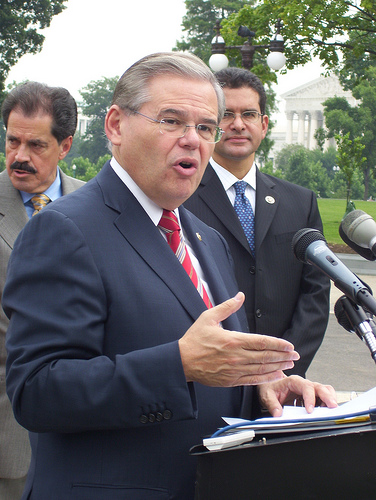The Obama administration on Tuesday finally weighed in on how high to set the oil spill liability cap, after offering conflicting remarks on the subject last week. But although an administration official argued that no “arbitrary limit” should be placed on how much an oil company should be forced to pay in damages, Republicans once again blocked a measure to move the cap in the Senate.
Speaking before the Senate Energy and Natural Resources Committee, Thomas Perrelli, an associate attorney general in the Department of Justice, made it clear that the administration was only referring to the liability for future spills resulting from deep water drilling operations. The administration declined to offer explicit guidance on whether to legislation should act retroactively to cover the current Gulf spill. But he left the door open for such a possibility. “Congress legislates retroactively all the time,” he said. “I think we would have a very strong argument.”
Perrelli also affirmed that BP will pay the full costs for the spill. But he admitted, in an occasionally heated exchange with Senate Democrats, that he “cannot say whether” BP’s verbal and written commitments “will be binding in a court of law in the future.”
“You might be the last person in America to believe what BP says,” said Sen. Bernie Sanders (I-Vt.). “Do we lift the cap or not?”
“It’s not a matter of belief,” replied Perrelli. “We are committed to recovering every cent.”
Sanders wasn’t satisfied with this response. “The idea that we can simply trust BP because they say that they will cover all the damages is not enough,” Sanders later told reporters in the Capitol Tuesday. “We’ve got to lift the cap, we’ve got to lift it now.”
Senators have now tried three times to pass a bill that would raise the liability cap. Two attempts to raise it to $10 billion from its current level of $75 million were blocked in recent weeks—first by Lisa Murkowski (R-Alaska) and then by James Inhofe (R-Okla.). Senators tried again Tuesday, this time offering a bill that had no cap on the liability, in accordance with the administration’s directive. But Inhofe blocked the effort again.








